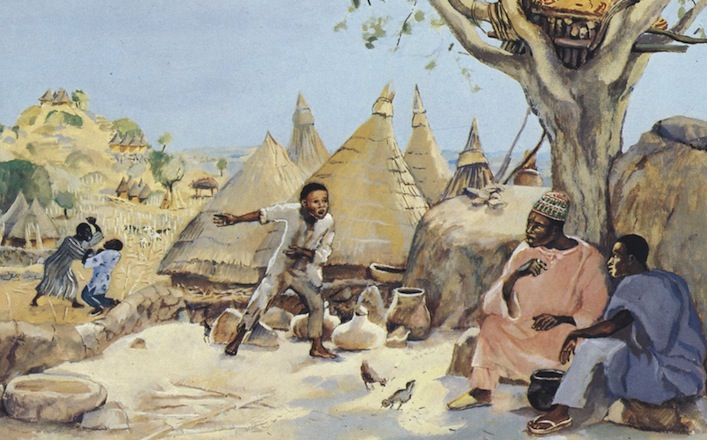Commentary on Exodus 14:19-31
Three steps forward … two steps back …
After the tenth and final plague — the murder of the first born of every Egyptian household — the Egyptians were terrified of what might happen next. They “urged the people to hasten their departure from the land, for they said, ‘We shall all be dead’” (12:33).
So the Israelites leave.
But, where this text picks up, Yahweh has one last miracle to perform, one that would forever establish that the God of the Israelites had power over two great enemies: chaos and tyranny. So, the Lord tells Moses to cross back toward Egypt so Pharaoh’s horses, chariot drivers, and army could pursue the Israelites and place them in a predicament that only divine intervention could save them from.
Power over the monster of chaos
You may have visions of Charlton Heston in your heads as you read this passage. Indeed, the drama of Cecil B. DeMille’s The Ten Commandments fits the drama of this event. Imagine — the waters dividing, splitting, parting so that thousands of Israelites could walk on dry land. Imagine the faith and fear and awe in their eyes as they made that journey, perhaps reaching out to touch the waters held back by Yahweh’s mighty hand.
This scene would call to mind an Israelite creation or combat myth for its first audience, one in which God cuts through the primeval sea monster, Leviathan (chaos). Isaiah evoked this creation myth in chapter 51, in order to convince the prophet’s congregation that the God who “pierced” the sea “dragon” and “dried up the sea” to make a way for Israel out of Egypt would do the same for those in Babylonian exile (Isaiah 51:9-10).
And of course, this evokes Genesis: “In the beginning when God created the heavens and the earth, the earth was a formless void and darkness covered the face of the deep, while a wind form God swept over the face of the waters” (Genesis 1:1-2). In the exodus event, God is creating a new identity for Israel, one that is distinct from the slave identity imposed on them by Egypt. The people, through the wilderness wandering, will be recreated.
This demonstration also reveals Yahweh as being more than the god of one nation. Yahweh instead is revealed — to the horror of Egypt and the delight of Israel — as the God of the whole universe. This then relates to the second message embedded in the reading for this week: that Yahweh has power over national tyrants and their weapons of war.
Power over the weapons of tyranny
What is a tyrant? A ruler who acts without concern for checks and balances. One who uses power oppressively and absolutely. Pharaoh is such a tyrant.
“Tyranny,” according to Michael Walzer, “is symbolized by Pharaoh’s horses and chariots, the core of his army and the source of his power.”1 It may be hard to imagine horses as being weapons of war, but in the scriptures, nearly all references to horses are associated with war. When Israel saw Pharaoh’s army on horseback, they were horrified. Israel, with flocks and families, was on foot and could not move very fast. The cards were stacked against them.
But Israel does not need to overthrow the enemy. Note that this is God’s doing (as the songs of Moses and Miriam reiterate). God alone has the power to cast the tyrant’s weapons of mass destruction — horse and rider — into the sea.
Picture Jesus riding into Jerusalem on a donkey. Recall the meaning behind God’s choice not to enter into the holy city on the equivalent of a tank. Although there is violence in this text, through Christ, we glimpse the will of God that all weapons of tyranny and war be destroyed at last, be they horses and chariots, or guns and drones.
The process of revolution
Now the great external impediment to liberation had been removed. Physically, their bodies have left Egypt and the tyranny of Pharaoh. However, as we shall see in the passages ahead, it will take some time for Israel to spiritually remove themselves from slavery and slave identity and to live into the responsibility of being tethered to Yahweh’s spiritual and ethical codes.
We have a prelude to this struggle in verses 11-12 before the parting of the sea: Why are you doing this to us Moses? Wouldn’t it be better to stay in Egypt and at least know our fate? Wouldn’t it be better to be close to the riches of a wealthy nation than to be lost in the wilderness? Without the external tyrant preventing the people from living into liberation, small counter-revolutions2 will begin to pop up within the camp, leading up to the Golden Calf episode (Exodus 32).
Preaching against the text
As I said in my commentary on the Passover last week, some preachers will feel the need to preach against this text. Or at least to complicate the notion that Pharaoh’s army does not consist of persons who are victims of tyranny in their own ways. The army is made up of people who have hopes and dreams and families and inside jokes and, perhaps, questions about their role in life as soldiers. We may have veterans in our congregations, as well as parents of soldiers. How would they hear this text? Where is God in war today? What good news can you offer them?
And of course this event begins with God once again hardening Pharaoh’s heart (verse 4), so that he changes his mind about letting his cheap labor go free. And then God hardens the hearts of the army (verse 17) so that they set their sights on annihilating the escapees. Is God then responsible for the deaths of the soldiers thrown into the sea? There are congregants who may ask this of you. How would you respond?
Notes:
1. Michael Walzer. Exodus and Revolution. (New York: Basic Books, Inc., 1985), 32.
2. George V. Pixley. On Exodus: A Liberation Perspective. (Maryknoll, New York: Orbis Books, 1987), 82.


September 17, 2017